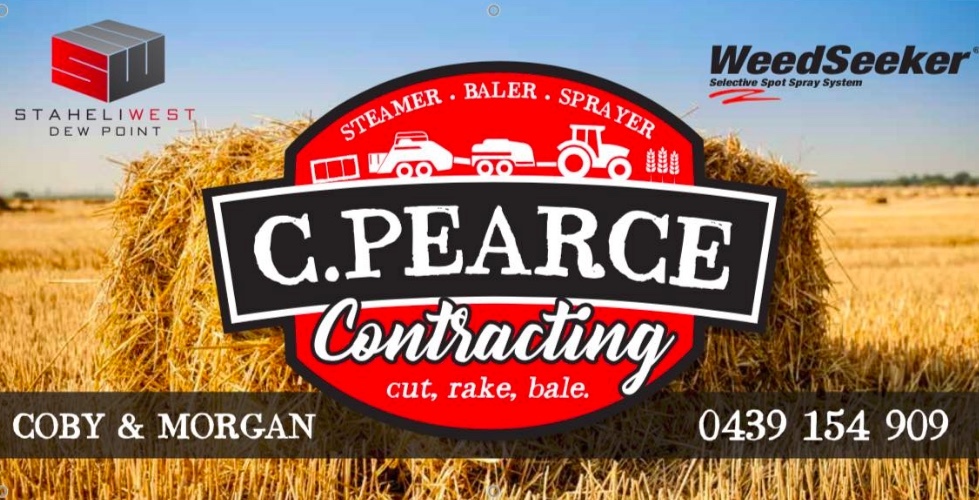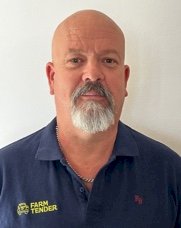Interview with our #FarmTender2020 keynote speaker Charles Baron from FBN
- By: "Farm Tender" News
- US & World News
- Jan 06, 2020
- 856 views
- Share

This article is bought to you by C Pearce Contracting
Check out an interview with Charles Baron, the co-founder of US Ag start-up Farmers Business Network (FBN). Charles will be a keynote speaker at our #FarmTender2020 day on June the 5th, 2020
Charles Baron has made disruption his profession. As co-founder of Farmers Business Network (FBN), he has changed the way some farmers do business—allowing them to connect with each other while they research and buy farm inputs anywhere they have an internet connection.
It’s all about e-commerce, he says, which gives network members transparency, efficiency, fair pricing, and an overall better customer experience. “You don’t have to go negotiate in an office with somebody,” he says. “A customer once told me, ‘I spent $20,000 in my underwear.’ That’s great.”
Ad - C Pearce Contracting is looking for Straw Baling work right now- Ad
Baron previously worked for Google in advanced energy technologies. He has a bachelor’s degree from Dartmouth and an MBA from Harvard, plus coursework at MIT.
Successful Farming caught up with him at the most recent Farmer 2 Farmer conference in Omaha, Nebraska.
Q: Farmer’s Business Network has a different business model than many of the other businesses that farmers work with. How do you explain that model to farmers?
A: Very simply, we’re a network of growers. We have a big community, about 9,600 farmers who are wanting to change the industry, to change the basic framework and the rules of the game they have to operate in. They work together and with FBN to do that.
It’s a way of growers connecting with each other online with information and commerce to get more power, to level the playing field, and to get better information and an edge in the market. It’s a membership network, we just use technology to do it.
Q: Many of the businesses farmers are accustomed to working with are publicly traded and accountable to their shareholders. What does accountability look like for FBN?
A: We’re five years old, we’ve got a bit of a track record now, but we don’t have the luxury of a brand that has been around a hundred years and everyone recognizes and puts under the Christmas tree. We have to earn it every day. We’re 100% accountable to every interaction we have with our customers. We have to fight for and earn every inch we get.
Q: Tell me about someone who has been influential in your ag career.
A: I had not stepped foot on a farm until I was 23 and I met my future brother-in-law, Anthony, and became fascinated by his life in Nebraska. I had grown up in California. I had gone to school in New England. I had not spent time on a commodity farm, or a lot of time in the Midwest. I had no appreciation for agriculture or rural business and how hard it is.
Anthony and I are the same age but I felt like he was light years ahead of me in terms of sophistication and what he was having to deal with and manage. I realized how hard the job is, how many things a farmer has to do. You have to be a mechanic. You have to be an agronomist. You have to be a chemical expert, a marketer, a businessperson, know about taxes. You’ve got to do everything. It’s very, very complicated.
Ad - C Pearce Contracting is looking for Straw Baling work right now- Ad
The other thing I realized as I was riding around with him in the grain cart listening to the markets update. The radio announcer is saying there’s rain in Brazil, so beans are down. I said, what does Brazil have to do with Nebraska? It was just amazing that you’re in this globally connected system that is driving your livelihood in rural America, yet you’re totally on your own.
And finally, when we created FBN I always had a basic test. If I was going to create a business in agriculture that was going to be opposed to a customer’s interest, then I wouldn’t survive Christmas with my brother-in-law. He played lineman for Nebraska.
Q: You’re five years into this. When you started FBN is this what you pictured?
A: It’s never, never easy. But it’s gone incredibly well. It is so rewarding to see thousands of members out here and to be delivering value and saving them money or making them money. We’re actually changing the industry. That’s the best thing you could possibly hope for. We’ve only just started. We’re in the bottom of the first inning.
Q: What sort of pivots and changes has the business had to make along the way?
A: We haven’t had to do massive pivots. We have made many bold decisions where we have changed or modified the original vision of FBN in terms of how we saw it actually playing out. At the beginning we thought it might be a system that 100,000 farmers would use, just on data. And then we very quickly realized that there aren’t that many farmers who are that advanced with data where that was going to be the answer. What we needed to do was build a platform that works for more people and then open up new alternatives that other people can participate in. Now you actually have a platform that 50,000 people can participate in. You have to question your assumptions as you go.
The other basic rule of thumb we’ve learned is if someone from the industry tells you something is a bad idea, you should do it. Because that means it is good for farmers. And if it’s good for farmers, we’re going to do it.
Q: FBN has been disruptive in the industry. How does FBN deal with the reaction to that?
A: Oh man! We get the most naked, aggressive behavior. Bullying, anti-competitive threats, harassment, and our people get threatened online. People get harassed. You’ve got trolls online.
Now, it depends who is throwing the nasty stuff. If it is farmers, then we wouldn’t like that. If it’s industry, we’re right on. It takes some time to accept that, but once you get that, you realize it’s actually a marker of a good decision.
If everyone in industry is questioning you and calling you an idiot and saying nasty things about you, then you ask, “Why are they so upset? Why don’t they want us to do this? What is wrong with transparency? Who on earth can argue with transparency? Why is that a bad thing?”
Ad - C Pearce Contracting is looking for Straw Baling work right now- Ad
You will see nothing but positive goodwill from FBN employees. You will never see an FBN employee attacking someone else, no matter who they work for.
Q: At Farmer 2 Farmer, many farmers are talking with each other about the things that keep them up at night. What keeps you up at night?
A: The long-term position of farmers. Most producers raise commodities, which are a global business. It’s hard to get an edge in commodities. What are you going to do when commodity demand dips, or trade pops up, or suppliers consolidate? Those all put pressure on producers if you’re tied to the commodity system.
I think producers should do a couple things. Number one, if you’re growing commodities, manage your costs ruthlessly. Get into the strongest financial position you possibly can so you’re equipped. Number two, develop options. Create competition so this market doesn’t get consolidated. That’s fundamental. Number three, look for alternatives. That’s organic, non-GMO, specialty crops, premium crops, regenerative premiums – anything you can do to sell direct. Anything you can do to not be fully tied to a commodity system is going to help a farmer be in business 10 years from now.
Q: It sounds like a new option for farmers looking to diversify are the new hubs coming to FBN. Tell me more about that.
A: The hubs are very cool. FBN is online obviously, and people say FBN is e-commerce. We are e-commerce. We. We are e-commerce first. What that means is e-commerce gets you transparency, fair pricing, a better interface, a better customer experience. You can buy it sitting in your underwear at night. It gives you efficiency and it lets you lower cost.
But, farmers also want some of the benefits of a physical presence. They want to pick up, they want returns and swaps, they want it the same day. That’s harder to do online. What we’ve done is set up with our members a platform that allows them to drive the network, be the network hub in their region, and set up a side business where they are working with FBN and provide the other members in the area access to those products, earning an income while they do it.
Q: What advice do you have for non-farm kids like yourself wanting to make a difference in the world with a career in agriculture?
A: There’s many ways to skin the cat. The same thing goes for people who want to work in technology. Working in technology doesn’t mean you have to work at Google, and working in ag doesn’t mean you have to work at a co-op. You can work in technology in ag. We have 450 employees now. There’s a whole world of people in Silicon Valley who are from rural areas and said, “I can do tech, and make it make sense and people at home understand it.” And at the same time, there are a whole lot or people in rural America that want to work in tech, but they’re not going to move to San Francisco. I think the future is going to be technically driven. You have to get involved, and there’s lots of ways to do it.
Check out the #FarmTender2020 page here
Ad - C Pearce Contracting is looking for Straw Baling work right now- Ad













Share Ag News Via